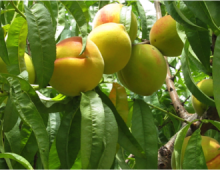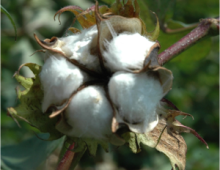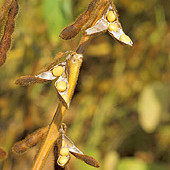A peach of a genome with breeding lessons for biofuels crops
Several plants sequenced by the DOE Joint Genome Institute have been considered “flagship” genomes due to their importance to DOE mission and plant science. Among these plants are poplar, the first tree sequenced and a candidate bioenergy feedstock, and soybean, the primary source of biodiesel in the United States. Other plant genomes are important for… [Read More]


